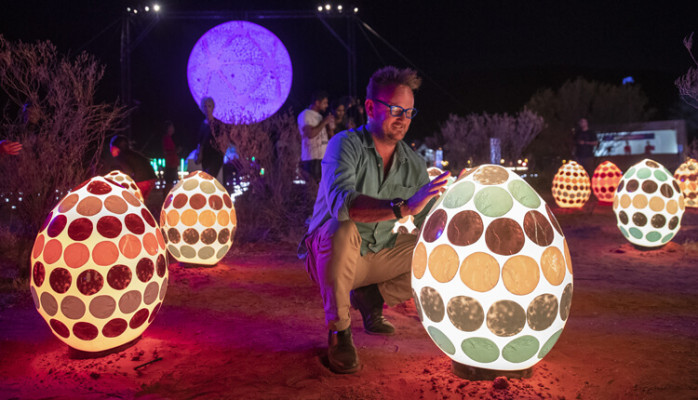Renewables and sustainable energy
With renewables, sustainable energy and tourism can complement each other. Renewable energy includes solar, wind, hydro, biomass and geothermal. Whilst technology is still progressing for some of these energies, others are well developed and available in the NT, including in some remote areas. There are government grants and programs dedicated to the reduction of energy consumption and the transition to renewal energy. Keep your eyes open and take advantage of these opportunities whenever you can.

Get started
To initiate your path towards becoming a sustainable tourism business, we have outlined essential areas to concentrate on and practical measures to integrate sustainable practices into your operations.
- Make use of natural lighting. It has a positive impact on workplace productivity and employee well-being, and saves energy and money!
- Increase lighting efficiency by installing motion sensors and changing bulbs to LEDs, which use around 80% less energy and last longer.
- Set your hot water temperature to a maximum of 60˚Celsius and talk to your maintenance manager or local plumber about low cost options to insulate your hot water system.
- Use timing functions to coincide cooling and/or heating control with your opening hours.
- Set your thermostats in accordance with the following and ask housekeeping to return thermostats to these set-points:
- Air-conditioning: 24˚Celsius
- Heating: 18˚Celsius
Adjusting your cooling or heating by just one degree can bring significant savings to your business. - Clean the filters in your heating and cooling systems once a month to maximise efficiency. Dirty filters can increase running costs by 5 – 10%.
- Ensure that the dress code for your staff is appropriate for your climate, allowing them to be more comfortable in hot or cold weather.
- Power down electrical equipment at night, including TVs, computers, printers and monitors. Standby power is an energy sponge that results in significant carbon emissions Tooltip button each year.
- Clean and maintain all electrical equipment regularly to ensure they are operating at maximum efficiency, including office, kitchen and workshop equipment.
- Get your staff on board. Provide training and education about how they can save energy and create an energy efficient culture within your business.
- Display signs, posters or flyers to educate and encourage staff and travellers about energy efficiency. Give travellers practical advice relevant to their visitor experience, for example ask hotel guests to keep doors and windows closed while air-conditioners are running.

Take further action
The below checklist aims to encourage you to surpass the fundamentals and adopt innovative strategies that foster environmental stewardship, empower local communities, and offer authentic and responsible travel experiences.
- Apply for the Smarter Business Solutions program to help you reduce day-to-day energy, water, waste and material costs*.
*Eligibility criteria applies. - Install a solar photovoltaic (PV) system with a battery and inverter, or add a battery and inverter to your existing solar PV system so you can store electricity generated by the solar panels for use when the sun isn’t shining. NT Government funding is available through the Home and Business Battery Scheme*.
*Eligibility criteria applies. Closes 30 June 2024. - Install blinds, curtains, awnings or shutters to control direct sunlight on windows, particularly those facing north and west.
- Install solar window screens or solar films to deflect sunlight, reduce glare and help to keep your business or vehicle cool.
- Plant trees and vegetation to provide shade for your visitors and keep your business cool. Ensure the type of tree you plant is safe for your region, particularly if it is a large variety in a cyclone affected region.
- Replace old appliances with low energy products, looking out for high scoring energy rating labels.
- Install screens or curtains at the entrance to large or walk-in refrigeration systems and service them at least once a year to ensure they function efficiently and have a longer life.
- Use solar-reflective paint on your roof, pavements and outside walls.
An emission of something, such as gas or vapor, is the release of it into the atmosphere. A specific set of gas emission associated with human activities that alter the Earth’s climate are called greenhouse gas emissions.
